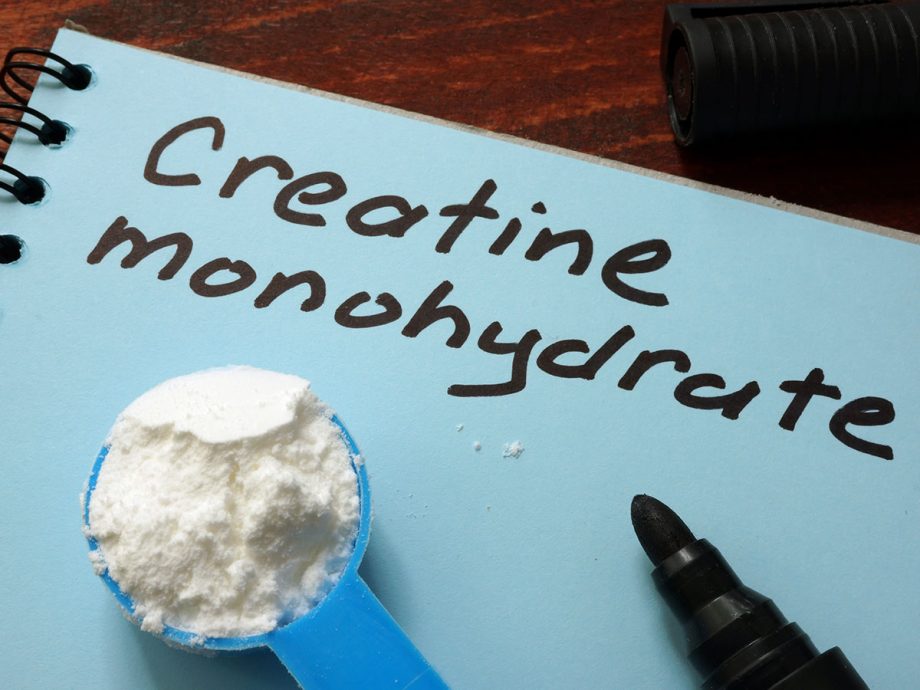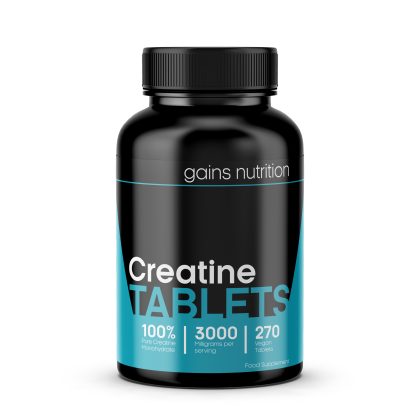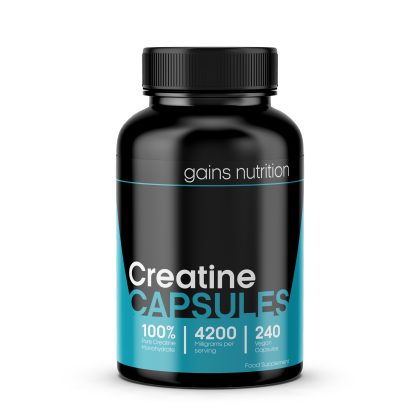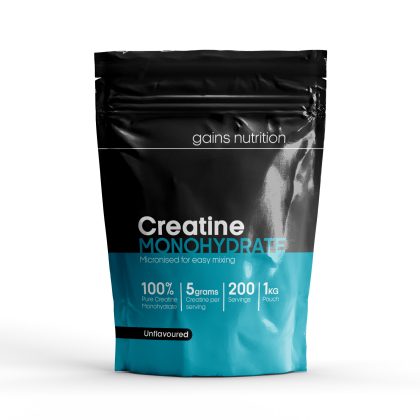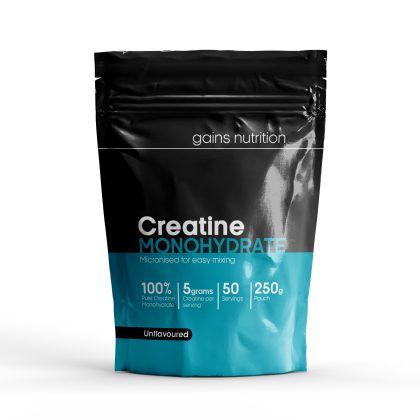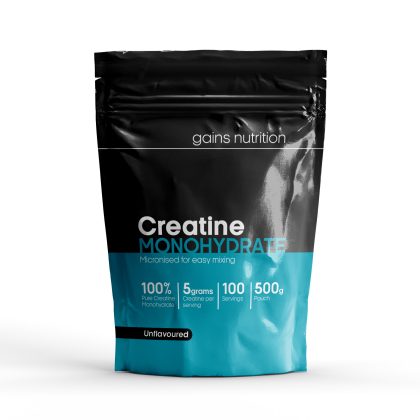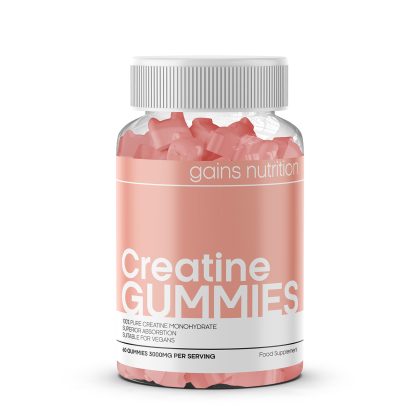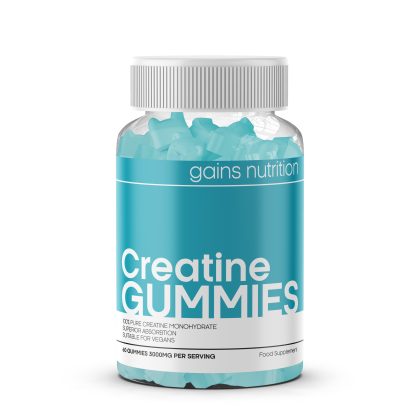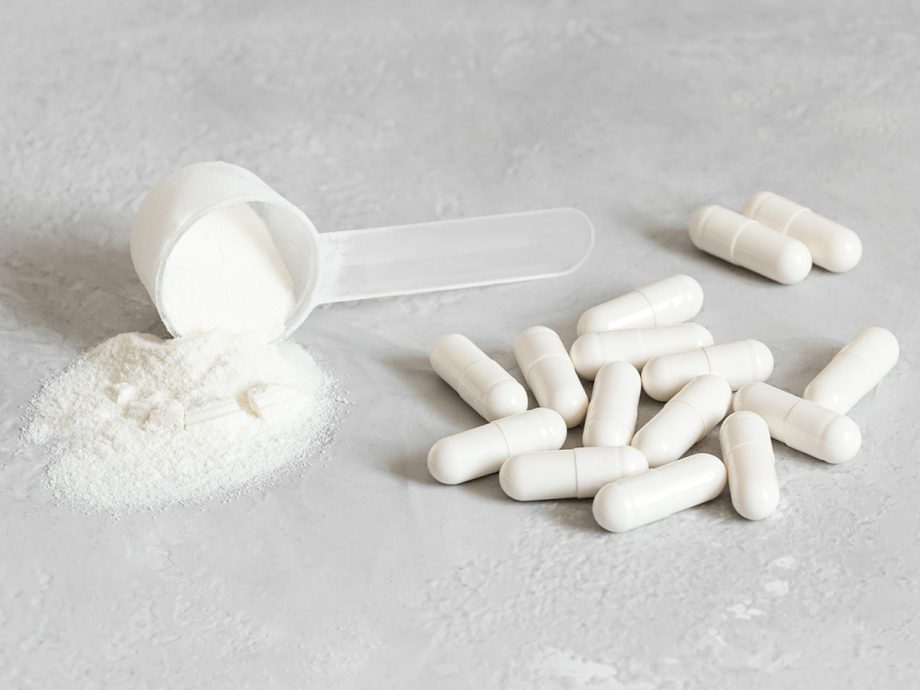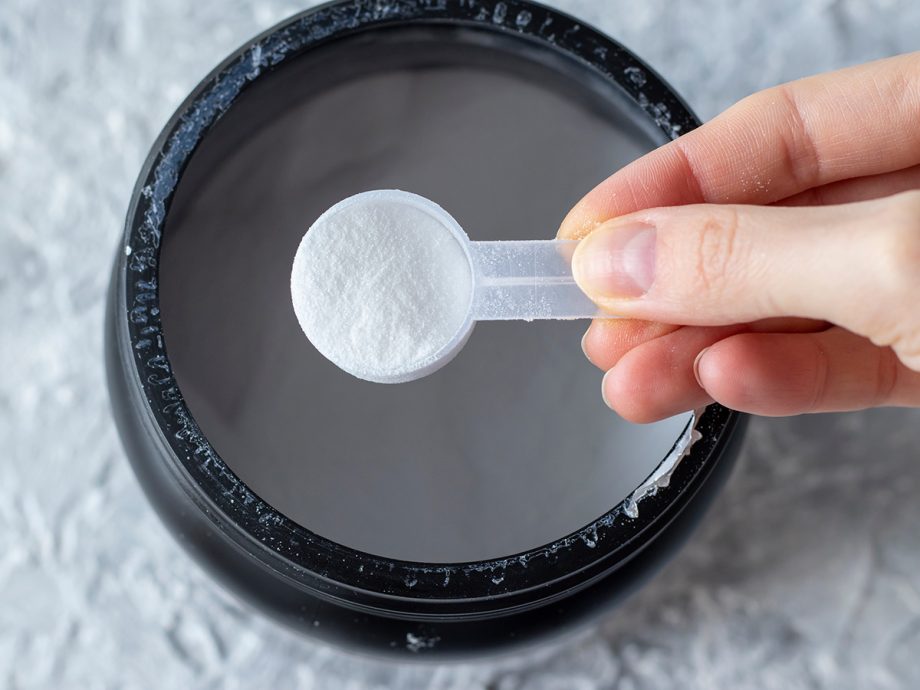Creatine stands as a staple among fitness enthusiasts, widely acclaimed for its efficacy as a supplement. Backed by extensive research, its diverse benefits have been validated in numerous scientific studies. But what exactly is creatine, and how can it contribute to achieving your fitness aspirations?
Whether your goal is to increase muscle mass, set new personal bests in your lifts, enhance sprint performance, improve recovery, or even sharpen short-term memory, creatine supplementation holds significant promise and warrants serious consideration.
Article Contents:
- What is Creatine?
- How does Creatine Work?
- Who Should take Creatine?
- Creatine effects & benefits
- How to take Creatine
- In summary
What is Creatine?
Creatine, a naturally occurring compound structurally akin to an amino acid, plays a pivotal role in our body’s energy system. It can be found abundantly in various dietary sources such as beef, pork, and fish, and is also synthesized within the liver, kidneys, and pancreas.
Predominantly stored in skeletal muscle, about 95% of the body’s creatine reservoir resides within these muscle tissues. For instance, an average male weighing 70kg typically harbors approximately 120g of creatine. However, through creatine supplementation, this storage capacity can be enhanced, potentially allowing the body to stockpile around 160g of creatine.
On a daily basis, the body naturally metabolizes 1-2% of its muscle creatine reserves. To replenish these depleted creatine levels, the body either synthesizes it from amino acids or absorbs it from dietary sources, predominantly meat and fish.
However, acquiring meaningful amounts of creatine solely from food requires consuming large quantities. For example, to obtain just 1g of creatine, one would need to consume approximately 450g of uncooked beef. Hence, supplementing with creatine emerges as a cost-effective and efficient strategy to augment the body’s creatine availability.
In summary, creatine supplementation offers a convenient means to bolster the body’s creatine reserves, supporting enhanced muscular performance and vitality.
How does Creatine Work?
Creatine, a crucial player in your body’s energy system, forms a dynamic partnership with the chemical compound phosphagen to create phosphocreatine (PCr). When engaging in explosive exercises like heavy squats or sprinting, your body taps into creatine to produce adenosine triphosphate (ATP) for fuel.
The ability to sustain high-intensity performance hinges on the availability of ATP in your muscles. PCr plays a pivotal role in replenishing ATP levels, thereby extending your capacity to maintain the required intensity for prolonged durations.
In addition to its role in ATP production, PCr serves as a direct energy source during explosive movements such as weightlifting or sprinting. Augmenting your body’s PCr reserves can enhance your capacity to push through additional reps during intense workouts.
Supplementing with creatine facilitates the optimization of PCr stores, resulting in an elevated quality of performance over extended periods. This sustained high-quality work output fosters notable training adaptations, including increased muscle mass, enhanced strength, and improved sprinting capabilities.
In essence, by harnessing the power of creatine, individuals can unlock a pathway to achieving greater athletic performance and training success.
Who should take Creatine?
Creatine stands as a powerful ally for individuals seeking to enhance muscle mass and strength. Its positive impact on repeated bouts of high-intensity exercise extends its utility to various sporting endeavors as well. Extensive evidence supports its performance-enhancing benefits across a spectrum of sports, particularly those characterized by explosive movements and the need for rapid recovery from repeated sprints.
For seasoned strength trainers, hitting a plateau can be a frustrating roadblock. Despite dedicated efforts, seeing stagnant numbers on lifts like the squat or bench can be disheartening. Incorporating creatine supplementation into your regimen could provide the extra edge needed to overcome such sticking points and propel progress forward.
Moreover, vegetarians, who typically have lower levels of creatine due to its presence primarily in meat and fish, may derive even greater benefits from creatine supplementation. By replenishing depleted creatine stores, supplementation offers an effective means for vegetarians to optimize their performance and achieve their fitness goals.

Creatine Effects & Benefits
Creatine Supplementation for Muscle Growth
When paired with resistance training, creatine supplementation emerges as a highly effective strategy for boosting muscle mass. Research consistently demonstrates that individuals who supplement with creatine can achieve nearly double the muscle gains compared to those who do not.
While the precise mechanisms underlying this increase in muscle mass remain somewhat elusive, evidence suggests that the enhanced muscle gains may be attributed to an augmented capacity to engage in higher quality training sessions. Essentially, the expanded storage of creatine enables individuals to perform additional reps and experience improved recovery between sets, ultimately leading to greater muscle hypertrophy over time.
Moreover, creatine exhibits osmotic properties, drawing water into muscle cells and causing them to swell. This phenomenon is thought to serve as a signal for initiating muscle protein synthesis, the process through which the body builds new muscle tissue.
For individuals focusing on developing muscles in the chest, shoulders, and arms, recent research highlights the particular benefits of creatine supplementation for muscular hypertrophy in these areas. A study comparing muscle mass gains in response to resistance exercise revealed that supplementing with creatine resulted in greater muscle growth in the upper body compared to the lower body.
This discrepancy was attributed to differences in muscle fiber type composition, with upper body muscles containing a higher proportion of type 2 muscle fibers, which are more responsive to creatine supplementation due to their increased uptake of creatine.
Additionally, the effects of creatine on muscle mass are particularly pronounced in individuals following a vegetarian diet. Research investigating the impact of resistance training combined with creatine supplementation demonstrated that over an 8-week period, vegetarians experienced an average gain of 2.4kg of lean body mass, compared to 1.9kg in meat eaters.
In conclusion, creatine supplementation, when combined with resistance training, presents a potent strategy for enhancing muscle growth and achieving optimal training outcomes, with notable benefits observed across various muscle groups and dietary preferences.
Strength & Performance Benefits of Creatine
The advantages of creatine supplementation on strength performance have been extensively researched and well-documented. Studies, both short-term and long-term, consistently report significant improvements in strength performance, ranging from 5% to 15%.
For individuals aiming to achieve new personal bests, particularly in exercises like the bench press, creatine supplementation may prove to be a game-changer. Research focusing on the impact of creatine on one-repetition maximum (1RM) bench press performance has revealed notable increases, ranging from 3% to an impressive 45%.
Moreover, creatine supplementation exhibits broad-spectrum benefits across a variety of common gym exercises, including the squat, leg press, leg curl, leg extension, and shoulder press. A comprehensive 10-week study assessing performance in these exercises found that creatine supplementation led to improvements in strength performance across the board. This enhancement was attributed to an increased work capacity and heightened resistance to the effects of overtraining.
Furthermore, the advantages of creatine extend to the realm of weightlifting, where its effects have been particularly pronounced. A review paper investigating the impact of creatine supplementation on strength and weightlifting performance revealed that individuals supplementing with creatine alongside resistance training experienced a substantial 26% increase in performance. In contrast, those not using creatine saw only a 12% improvement. This notable 14% difference can significantly impact an athlete’s ability to excel and secure a podium position on competition day.
In summary, creatine supplementation emerges as a potent tool for enhancing strength performance across a wide range of exercises, making it a valuable asset for individuals striving to achieve peak athletic performance and excel in competitive settings.
Utilizing Creatine for Glycogen Replenishment
Creatine supplementation can play a pivotal role in aiding your body’s replenishment of glycogen stores. When engaging in resistance training, your muscle glycogen stores can be depleted by up to 40%, influenced by the duration and intensity of your session.
The capacity to restore glycogen levels holds significant importance in the realm of recovery, as it facilitates a quicker return to training or exercising at the same high intensity. By bolstering glycogen replenishment, creatine supplementation offers a valuable mechanism for enhancing post-workout recovery and optimizing subsequent performance.
Potential Cognitive Benefits of Creatine Supplementation
Beyond its well-known effects on muscle performance, creatine may also have implications for brain function. Evidence suggests that during complex mental tasks requiring substantial energy, creatine supplementation can enhance performance.
For instance, in tasks involving number recall, individuals who supplemented with creatine demonstrated improved performance compared to those who did not. Interestingly, this effect was more pronounced in tasks demanding higher levels of cognitive effort, highlighting the potential of creatine to support brain function during periods of increased energy demand.
Similar to its effects on skeletal muscle, vegetarians may experience greater cognitive benefits from creatine supplementation due to the absence of dietary creatine in their diet. This underscores the potential of creatine as a versatile supplement with implications beyond physical performance, extending to cognitive function as well.

How to take creatine
Best time to take creatine
Timing your creatine intake strategically can maximize its benefits, with post-workout being an opportune moment. This timing aligns with the elevation of anabolic hormones, such as insulin, which facilitate muscle building processes.
Moreover, research indicates that consuming creatine alongside protein and carbohydrates may enhance its uptake into muscle cells. Combining these nutrients in a post-workout shake presents a synergistic approach to optimize recovery and capitalize on training adaptations.
In summary, incorporating creatine into your post-workout routine, ideally alongside protein and carbohydrates, can serve as a strategic tactic to promote enhanced recovery and support your fitness goals.
Creatine Supplementation Dosage Strategies
To rapidly increase creatine stores, a loading phase is often recommended. An effective example of this is consuming 5g of creatine monohydrate four times daily for a period of 5-7 days. This accelerated approach ensures a swift elevation of creatine levels, leading to quicker improvements in performance and exercise capacity.
Alternatively, it is possible to achieve saturation of creatine stores with a lower maintenance dose. For instance, consuming 3g of creatine daily for a duration of 28 days can effectively saturate creatine stores over time.
Once creatine stores are fully saturated, a maintenance dose ranging from 3-5g per day is generally sufficient to maintain optimal levels. However, larger athletes may require higher doses, typically ranging from 5-10g per day, to adequately maintain their creatine stores.
In summary, employing loading phases and maintenance dosages tailored to individual needs can optimize creatine supplementation, ensuring consistent benefits in performance and exercise capacity.
Potential Side Effects of Creatine Supplementation
The sole reported side effect associated with creatine supplementation is weight gain. Extensive long-term studies have consistently shown that daily ingestion of creatine poses no significant adverse health risks.
In summary, while weight gain may occur with creatine supplementation, scientific evidence indicates that it is a safe and well-tolerated dietary supplement with minimal risk of adverse effects.
In Summary
Creatine stands as a versatile ally in the pursuit of various fitness goals within the weight room. Its benefits span from enhancing strength across a diverse array of exercises to expediting recovery post-workout.
Moreover, creatine proves invaluable for athletes engaged in sports characterized by explosive movements and the need for rapid recovery between bouts of intense activity.
Vegetarians, in particular, stand to gain significant advantages from creatine supplementation. With lower levels of naturally stored creatine due to the absence of meat and fish in their diets, supplementing with creatine can offer substantial benefits.
Characterized by minimal side effects, creatine emerges as an economical and efficacious supplement for maximizing muscle growth, strength gains, and overall performance enhancement.
In summary, creatine serves as a multifaceted tool for individuals seeking to optimize their fitness endeavors, offering a cost-effective and reliable means to achieve their desired outcomes.
-
Creatine Monohydrate Tablets – 3000mg Per ServingOriginal price was: £19.99.£17.99Current price is: £17.99.
-
Creatine Monohydrate Capsules – 4200mg Per ServingOriginal price was: £24.99.£19.99Current price is: £19.99.
-
Creatine Monohydrate Powder – 1KgOriginal price was: £39.99.£29.99Current price is: £29.99.
-
Creatine Monohydrate Powder – 250gOriginal price was: £14.99.£9.99Current price is: £9.99.
-
Creatine Monohydrate Powder – 500gOriginal price was: £24.99.£17.99Current price is: £17.99.
-
Creatine Gummies, 3 Grams per serving, Peach FlavourOriginal price was: £19.99.£17.99Current price is: £17.99. — or Original price was: £17.99.£16.19Current price is: £16.19. / month
-
Creatine Gummies, 3 Grams per servingOriginal price was: £19.99.£17.99Current price is: £17.99. — or Original price was: £17.99.£16.19Current price is: £16.19. / month
